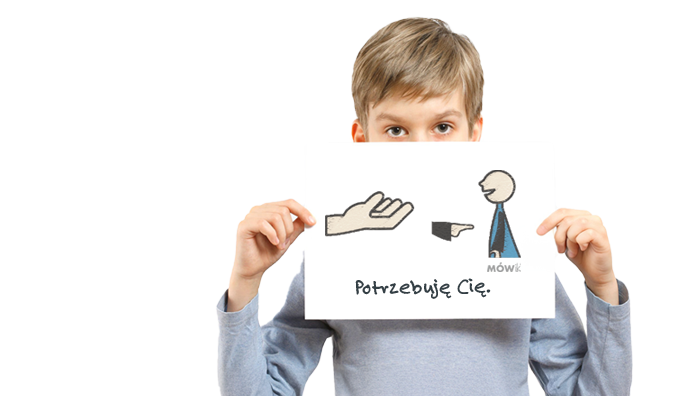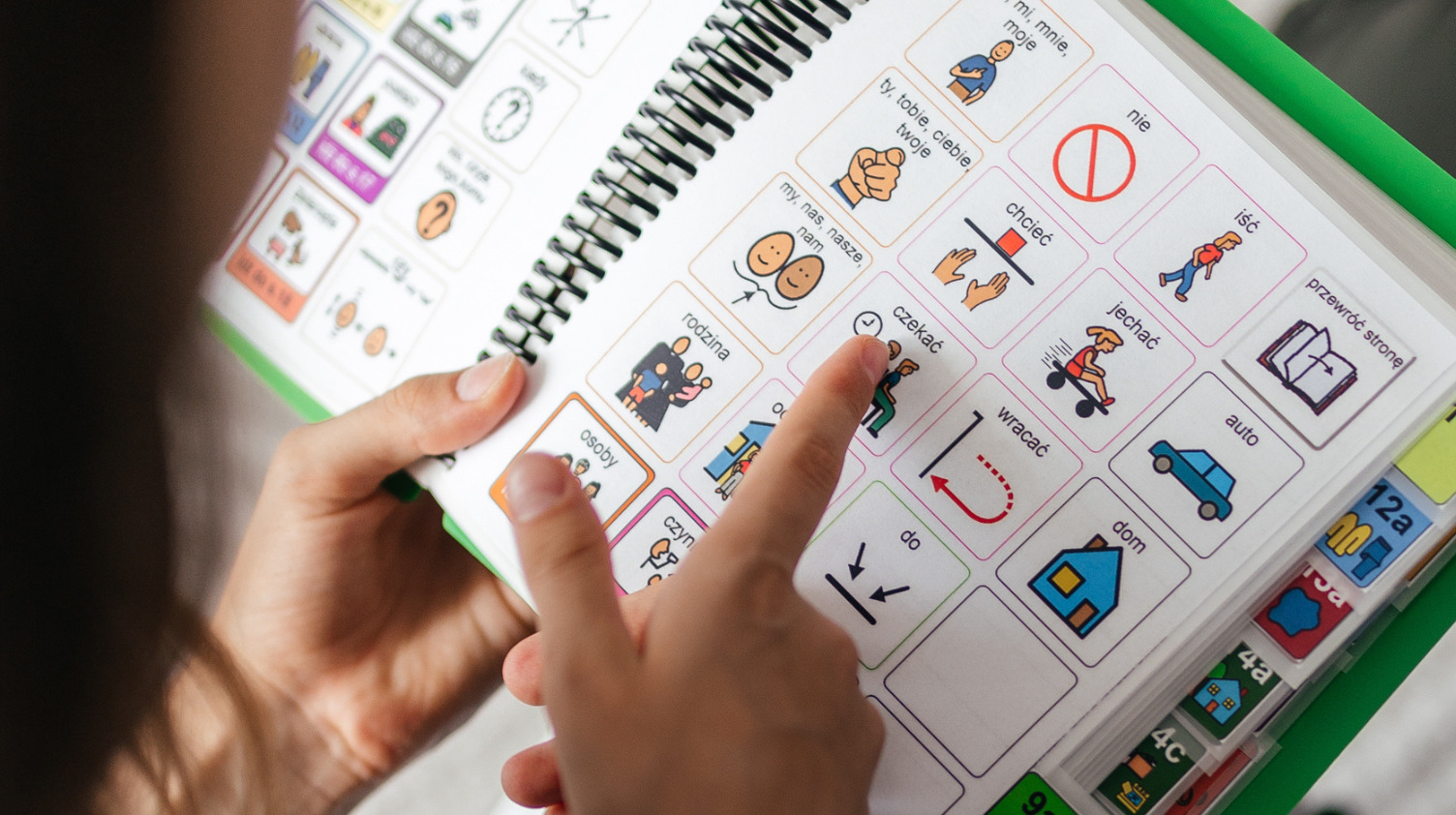Każdy ma prawo do komunikacji
Gdy nie możesz mówić, każdy gest, obraz czy symbol staje się głosem. Dla tysięcy osób neuroatypowych w Polsce komunikacja wspomagająca i alternatywna (AAC) – czyli metody takie jak gesty, obrazki, symbole czy urządzenia do komunikacji – to jedyny sposób, by wyrażać potrzeby, emocje i myśli. Dzięki AAC mogą mówić po swojemu. Niestety, zbyt wielu nadal pozostaje niesłyszanych.

- Strona główna
- Każdy ma prawo do komunikacji

Każdego dnia tysiące osób w Polsce milczy
Liczba osób które podpisały apel
Dla wielu neuroatypowych dzieci i dorosłych narzędzia komunikacji wspomagającej i alternatywnej (AAC) to jedyny sposób, by powiedzieć „kocham”, „boli mnie” lub „potrzebuję pomocy”. Brak wsparcia i szkoleń sprawia, że te potrzeby pozostają niesłyszalne. Twój podpis może to zmienić!
Komunikacja to prawo, nie przywilej. Każdy człowiek ma fundamentalne prawo do wyrażania siebie. Apelujemy, aby każde dziecko i dorosły w Polsce, jeśli tego potrzebuje miał dostęp do narzędzi komunikacji wspomagającej i alternatywnej (AAC) oraz aby pracownicy szkół, urzędów i służby zdrowia byli obowiązkowo szkoleni z AAC oraz podnosili swoje kwalifikacje w zakresie komunikacji z osobami niemówiącymi.
Chcę, żeby każdy miał prawo wyrażać siebie.
Co to jest komunikacja wspomagająca i alternatywna (AAC)?
Komunikacja wspomagająca i alternatywna (AAC) jest to zbiór technik, które mają zapewnić osobie komunikację w życiu społecznym. Nie każdy komunikuje się za pomocą mowy. AAC (Augmentative and Alternative Communication) to wszystkie metody, które pomagają osobom niemówiącym wyrażać siebie – od gestów, przez symbole i ilustracje, aż po aplikacje i specjalne urządzenia do komunikacji.


Dlaczego jest ważna?
Pozwala wyrażać potrzeby, emocje, opinie. Zwiększa samodzielność i jakość życia, także wspiera rozwój językowy oraz społeczny osób, które mają trudności w komunikowaniu się.
Bo każdy ma prawo powiedzieć „chcę”, „nie chcę”, „kocham cię”, „potrzebuję pomocy”.
Twoja DOBROĆ
to spokojna przyszłość
Ewy i Janka


AAC to wolność wyrażania siebie!
Dzięki komunikacji alternatywnej:
- Osoby niemówiące mogą podejmować decyzje
- Mają wpływ na swoje otoczenie
- Mogą wyrażać emocje i budować relacje
Nikt nie powinien być pozostawiony w ciszy.
Zobacz również

Diagnoza neuroatypowości, w tym autyzmu i ADHD to klucz do zrozumienia i nowy początek.
Przejdź
Odkryj to, co czyni Cię wyjątkowym. Testy na autyzm i ADHD w Fundacji Jim to pierwszy krok ku większemu zrozumieniu, akceptacji i wsparciu.
Przejdź
Bezpłatna pomoc, która zmienia codzienność. W trudnych sytuacjach możesz na nas liczyć.
Przejdź